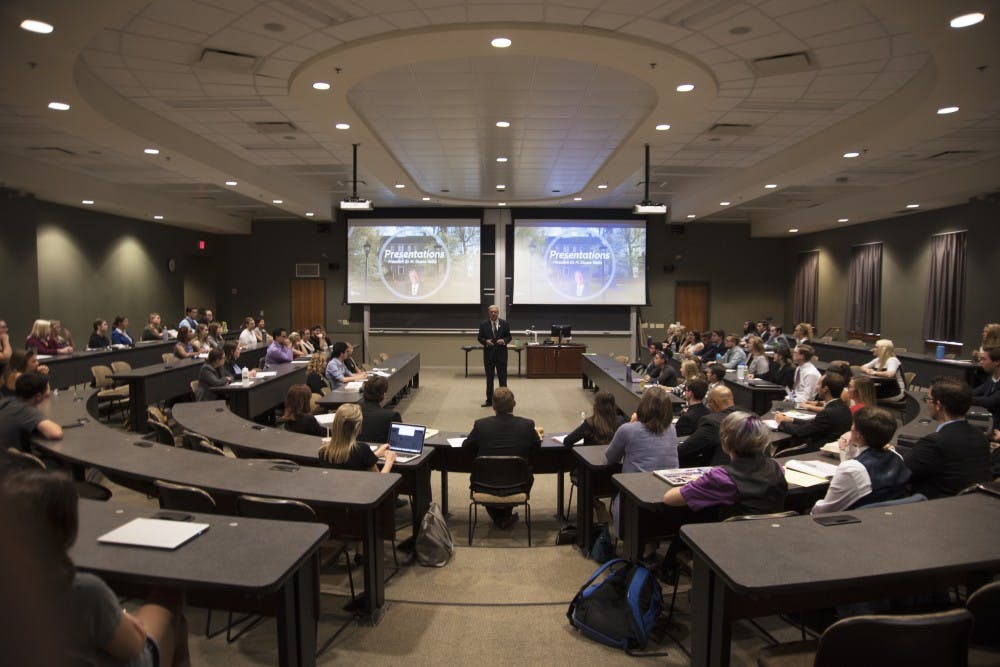Members of Ohio University’s 2018-2019 Student Senate are primarily unaffiliated with any political party, voting records show, but there are still significantly more Democrats than Republicans.
Voting records from each member’s county of registration show that 36 members of this year’s Student Senate are not registered under any political party. 16 members are Democrats, four are Republicans and two are Independents. The records of the 10 remaining senate members could not be accessed, and they did not respond to requests for information.
Hannah Burke, vice president of Student Senate, said that party affiliation is usually not discussed in the senate because partisan issues normally don’t come up on the senate floor. The issues that affect students, such as textbook prices, the pink tax or anti-discrimination policies, are not partisan-based.
Though the senate often debates controversial issues, those issues don’t always foster disagreement across party lines, said Student Senate President Maddie Sloat. Members disagree within their own party just as often.
“I don’t think there’s ever been a feeling, that I’ve been notified of, that it’s any different than people just disagreeing on day-to-day policy issues rather than partisan issues,” Sloat said.
Johnathen Sweeney, one of the Senate’s LGBTQA+ Affairs senators and a registered Democrat, agrees that disagreements within the senate are rarely partisan-based. He said senate members want to focus on solutions to the issues affecting the student body, and he emphasized the importance of having empathy for those with different viewpoints.
“Even if you have one way you believe, sometimes you have to bring up [the beliefs of others],” he said. “If a good chunk of people believe something else, you can’t ignore it, it has to be brought to the table.”
Chris Hrytzik, a senator for Off-campus Affairs and a registered Republican, was surprised to hear that the majority of the senate had no affiliation. He had also anticipated less than four registered Republicans. Still, he said the lack of a large number of fellow conservatives has not affected his work on Student Senate or prevented him from being heard.
“We work pretty well together because we’re working toward a common goal in the effort of representing the students,” Hrytzik said. “I mean, you can always kind of feel it, but it’s never a barrier, so to speak. No one ever really shoves it in my face like, well, you’re a Republican, you must think this. No, it’s always asking opinions, asking ideas, and that’s something I always found incredible about Student Senate.”
Hrytzik said rather than be worried about equal representation between parties in the senate, he is more concerned with electing and appointing the people who are best for the job.
“Who has the best ideas, who is the best suited, who has the best qualifications?” he said. “I think it should be more based on that.”
Sloat attributes the uncontested victory of the Forward ticket in the most recent election to their explicit outreach to the College Republicans. The organization was asked to run their own ticket and was also included in managing the Forward campaign even though Forward is primarily left-leaning. Hrytzik helped with the campaign behind the scenes.
“They said right from the get-go they want more Republican voice,” he said.
Sloat said pointed outreach to include conservative voices in the decision-making process has helped the senate serve all students, regardless of political background.
“I don’t think we’re doing our job if we’re not having all those voices present,” Sloat said. “That’s kind of counter to everything we stand for as representatives of a student body that is diverse.”






